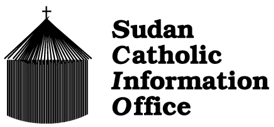Peace conference a milestone in uniting Sudan tribes
Efforts to reconcile feuding southern Sudanese communities marked another milestone last month with the conclusion of an historic peace conference at Liliir, Bor County in the Upper Nile region.
Christened East Bank Nilotic People-to-People Peace and Reconciliation Conference, the May 8-15 meeting sought to establish harmony and peace amongst the Anyuak, Dinka (Bor and Padang), Jie, Kachipo, Murle (Boma) and Nuer (Gawaar and Lou). The conference was organised by the New Sudan Council of Church (NSCC) and was part of the continuing grassroots peace process.
The Gawaar-Nuer, however, did not participate in the conference, having been prevented from doing so by an Upper Nile faction. The delegates requested that the Gawaar and other groups who did not have opportunity to partake in the meeting be given a chance to meet and reconcile as soon as possible.
The latest move was inspired by the success of the previous West Bank Dinka-Nuer Conference, which took place at Wunlit in March last year and the subsequent numerous people-to-people agreements.
By last September, the NSCC reported impressive gains from the Wunlit agreement. A report issued by the ecumenical organisation then indicated that some 148 abductees had gained their freedom. In addition, 141 cattle had been recovered, five marriages involving former abductees formalised while those involved in any acts of violation had been arrested and charged.
The NSCC initiative has won wide acclaim for being more people-centred and thus an important complement to the regional Inter-Governmental Authority on Development (IGAD) peace campaign that seeks to end civil strife in Sudan.
A home to close to 600 ethnic groups, Sudan has been at war since independence from the British in 1956 with only 11-year's hiatus between 1972-83. The current phase of civil strife, which, in its broadest sense, pits the Arab and Islamic north against the predominantly Christian and traditionalist south, has claimed an estimated 2 million lives. The war, now in its 17th year, has seen splits and counter splits in the main rebel group, the Sudanese People's Liberation Army (SPLA) along ethnic lines with devastating consequences on over 100 language groups in the south.
Analysts hold that the factional fighting in the south has been responsible for a greater number of the deaths than the direct clashes between Sudanese government forces and southern rebels. Villages and villagers have risen up against each other, clamouring for scarce resources, made scarcer through the protracted civil strife. Disputes over watering points, grazing land and fishing grounds have often led to bloody clashes between different communities.
The southern inter-ethnic animosity has been a boon to Khartoum's Islamic regime, which continues to manipulate it to its best advantage. To Khartoum, the factional fighting is more than adequate testimony about the southerners' penchant for war and their incapability to mange their own affairs.
Many are the southerners who view the SPLA as a tribal grouping whose sole objective is to establish a Dinka hegemony over the others. The Dinka are Sudan's largest ethnic group and comprise the bulk of the SPLA forces. Like Khartoum, the SPLA has been accused of numerous human rights abuses.
The Upper Nile conference was both complex and challenging, given the number of ethnic groups it involved. Over 250 traditional and civil leaders came together to address the animosity that has been the hallmark of the relations between their different ethnic groups as a result of the raging civil war. The conference welcomed a public declaration by a number of military officers, who in their capacity as civilian observers pledged their commitment to the people-to-people peace process.
To seal the multi-ethnic covenant, a white bull was offered as a sacrifice. Offering of Christian worship and the signatures of each of the participating delegates and observers complemented this.
Among other things, the delegates resolved to cease all traditional hostilities and urged all military (and militia) groups to respect the civilian population and abide by, and protect the covenant.
An amnesty was granted for all offences committed prior to the conference and a resolution made that all abducted women and children return to their places of origin. Additionally, it was agreed that where necessary marriages be formalised in accordance with the customary laws. Freedom of movement across the common borders was guaranteed and trade and communication encouraged.
The delegates appealed to all those who have been displaced, especially those from Bor area, to return to their homeland. Recognising the political leadership in the environment in which they operate, the delegates vowed to demand for good governance from their leaders and appealed for observance of human rights.
----------------------------------------------------------------------
SUDAN CATHOLIC INFORMATION OFFICE
Bethany House, P. O. Box 21102, Nairobi, Kenya
tel. +254.2.577595 or 577949, fax 577327
e-mail: [email protected]
----------------------------------------------------------------------
For further information, please contact:
Fr. Kizito, SCIO, tel +254.2.577595 - fax +254.2.577327 - e-mail: 
